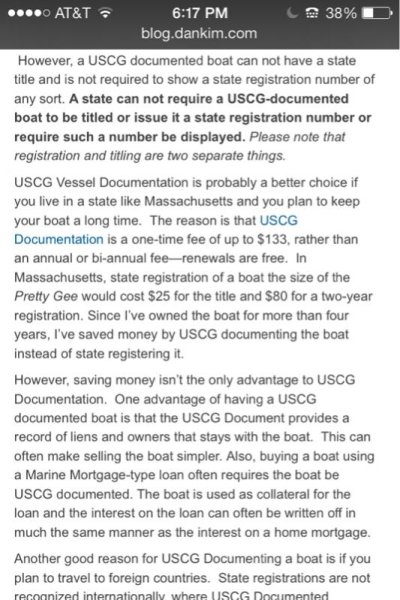cardude01
Guru
- Joined
- Nov 26, 2012
- Messages
- 5,290
- Location
- USA
- Vessel Name
- Bijou
- Vessel Make
- 2008 Island Packet PY/SP
I was under the impression that if the vessel was CG documented then the state registration was not needed, but I think I was confusing titling with registration...

So a documented boat doesn't have the state numbering on it but still needs the state sticker?
Can't I just tell the CG that I'm just "passing through"? I seem to have problems following rules...

So a documented boat doesn't have the state numbering on it but still needs the state sticker?
Can't I just tell the CG that I'm just "passing through"? I seem to have problems following rules...

